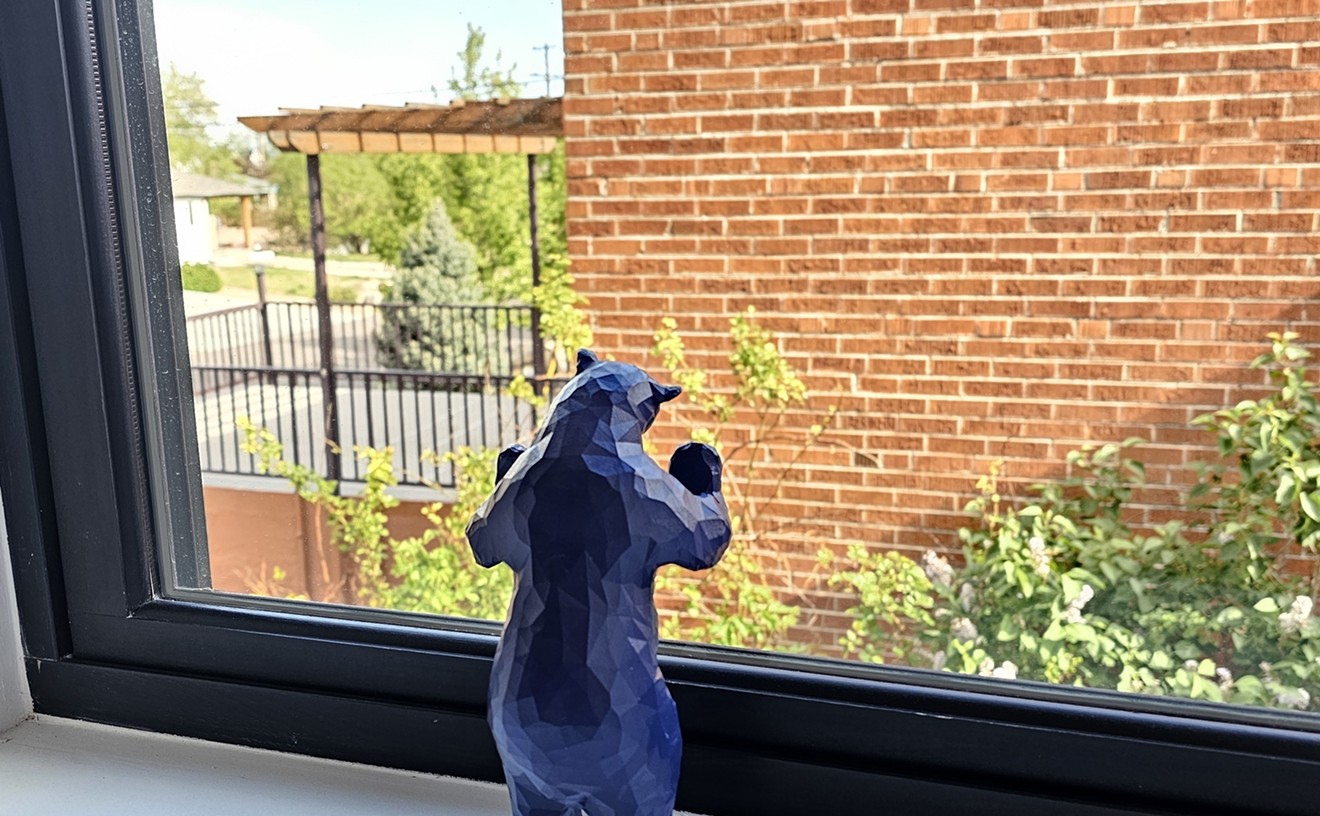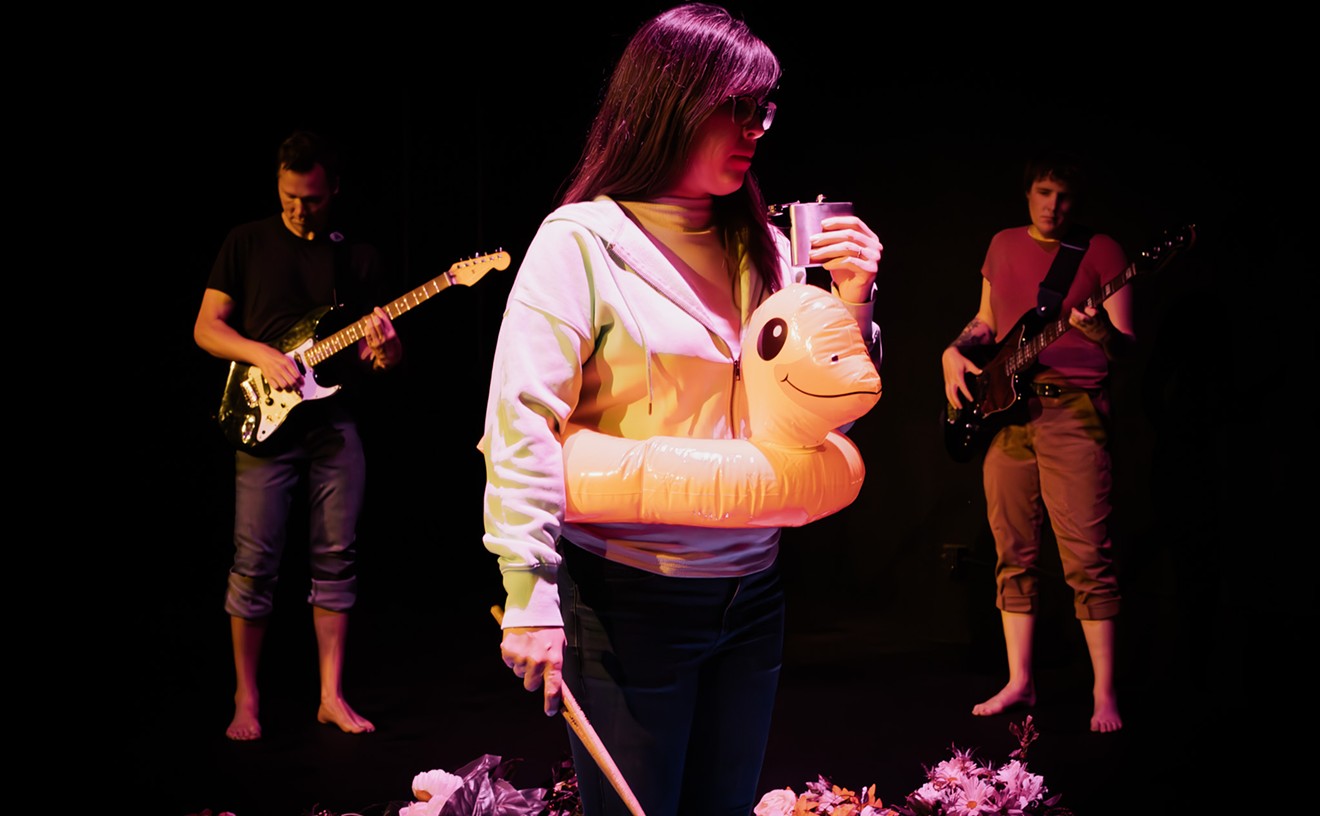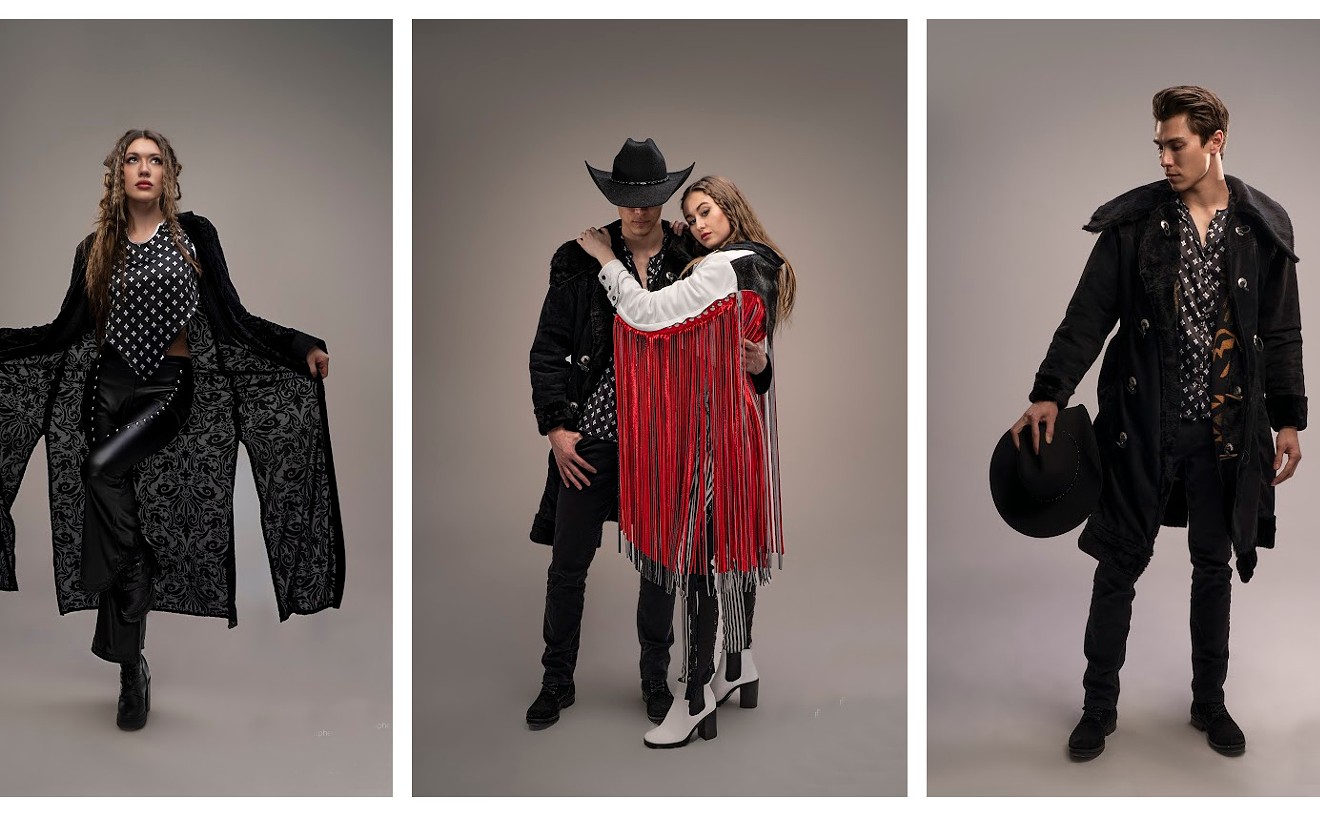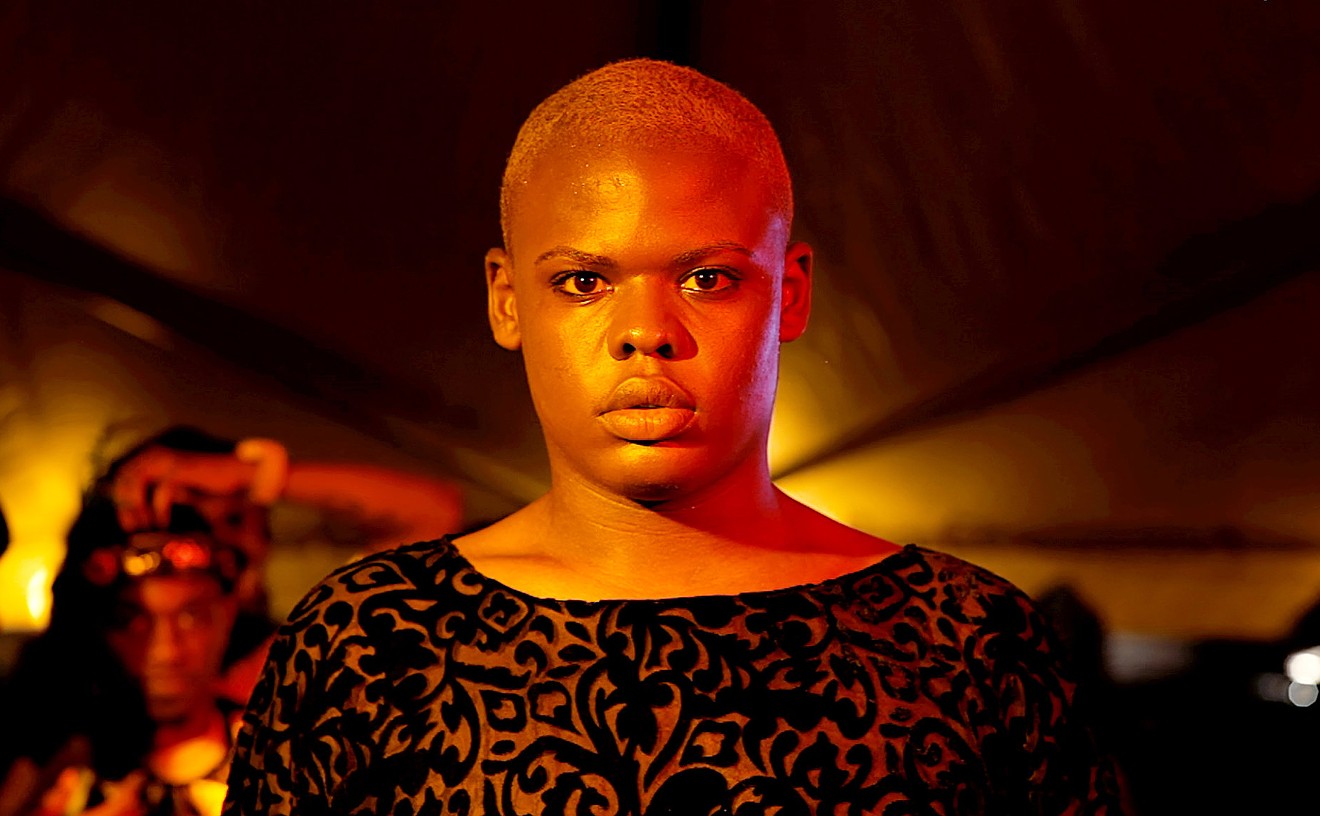There's only one cure when the brain's this fried: a trip to Heritage Square Music Hall in Golden, which at the moment is featuring the tragical-comical-historical-musical-scripted-yet-improvisational Western Who Done in Belle Starr?, based on the short, full life of nineteenth-century horse thief and outlaw Myra Belle Shirley Starr. Loosely.
The plot prances through Starr's numerous love affairs, her shenanigans as a mother and her brushes with the law, with seven actors blithely playing nineteen parts. Eventually, Belle is murdered. The second act takes place in a courtroom where a judge tries -- with help from the audience -- to sift through the testimony of the four people who each claim to have killed her.
The script for Belle Starr was written by Janice Estey, a really bad writer. So bad that she won the 1996 grand prize in the Bulwer Lytton contest for worst opening sentence to an imaginary novel with this finely tuned effusion: "'Ace, watch your head!' hissed Wanda urgently, yet somehow provocatively, through red, full, sensuous lips, but he couldn't, you know, since nobody can actually watch more than part of his nose or a little cheek or lips if he really tries, but he appreciated her warning."
Estey, herself an actress and singer, has written several scripts for the Heritage Square company. It was difficult to turn Belle Starr's life into a comedy, "because it wasn't," she says. "She was just bad news, this woman. A manipulator. She would just go with any man that took her fancy."
This seems to suit Annie Dwyer, who plays the role to a T. Tall, with a distinctively pitched voice, a flag of black shaggy hair, a menacing shoulder stoop and a long, loose-hipped stride, she's all over the stage -- riding a cardboard horse, seducing every man she encounters, mugging, roaring with rage or laughter, challenging the audience and bridling with fury when anyone calls her "Grandma." Dwyer manages to hold focus for almost the entire second act, during which she dies several times and in several ways. On the night I saw the show, a customer in the first row offered her a drink, and she halted her convulsions long enough to down it in one long, smooth swallow. When the death scene repeated, he held out a second drink. Another death scene, another glass of yellow liquid, and lots of puerile jokes about the lemon peel and the cherry. By now, Dwyer was reeling, but whether this was the effect of booze or lunatic inspiration, I couldn't tell.
Improvisation is a huge part of what happens at Heritage Square. Estey writes some of the dialogue to sound improvised; she also leaves gaps for genuine improvisation. "It's edgy, very much fun," she says. "You have to be on your toes all the time, and it is very risky. You can say something you think is going to work, and the crowd's so quiet you can hear the ice machine in the bar." And perhaps paradoxically, given the company's love of shtick and the shameless way it plays the audience, Estey notes that one of the most important elements of the performance is honesty.
T.J. Mullin is also inspired as Belle's neglected son, Ed. Mullin has a way of simultaneously under- and overplaying that's all his own, mugging for the audience while still appearing entirely immersed in his role. His comic timing is impeccable -- delayed where Dwyer's responses are instantaneous, quiet where hers are over the top. Together they're a hoot. And then there's Johnette Toye, who shares with the others a gift for full-out physical comedy and whose portrayal of bratty daughter Pearl is hilarious. There's plenty of comic support from Rory Pierce, Alex Crawford, Jon Olson and Paul Kern, too. All of the actors seem to be enjoying themselves immensely, and it's infectious.
Even once the trial has ended and Starr has died for the last time, still clinging to her highball glass, the show isn't over. After a brief intermission, the cast lines up with talented painist and music director N. Randall Johnson and bandmember Mark Jenkins for a brief and spirited country-Western songfest. They do a stirring rendition of "Ghost Riders in the Sky"; Toye reveals a lovely voice on "Let's Give Them Something to Talk About" and Pierce's clog dancing electrifies the house.
You leave feeling cheerful and anxiety-free. "It's like medicine, being able to laugh," observes Estey. "It does clear out all that junk."











